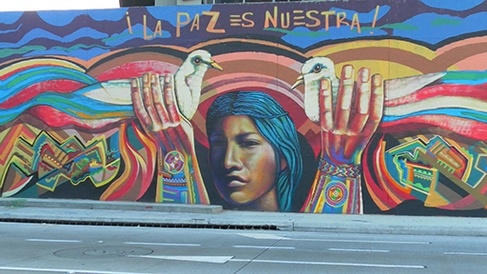Power and Protest: Social Movements and the State in Latin America

Power and Protest: Social Movements and the State in Latin America
This module looks at the rise of social movements and considers their relationship with the state. It will trace the history of protest movements in modern Latin America and will consider the ways in which economic, political, cultural and religious elites have sought to mobilise, repress or incorporate traditionally excluded sectors such as urban and rural workers, the peasantry, the informal poor, women and indigenous communities. It will critically examine the ways in which distinct modes of global and national economic development and governance have produced varying kinds of social movements and forms of resistance.
Exploring questions of autonomy, co-option and participation, it looks in detail at social movements of the last twenty years, including anti-water privatisation protests in Bolivia, Mexico's Zapatistas, Argentine Piqueteros, the Brazilian landless movement, Chile's student protestors, and Ecuadorean indigenous movements. Analysing responses to neoliberalism and the post-neoliberal reform experience, the module looks closely at the relationship between social movements, Latin America's new leftwing governments and global and transnational actors, especially the United States. Topics include the media and social media, trade unions, human rights, anti-imperialism and neo-extractivism.
